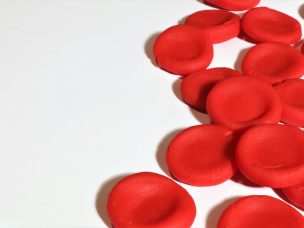While there is a significant body of research supporting the connection between racism in healthcare and poor psychological and physiological health outcomes, the literature in pediatric care is lacking, especially with regard to sickle cell disease (SCD).
As SCD predominately affects Black individuals, many patients—including many children—experience forms of racism in healthcare, including denial of treatments as a result of bias, stigmatization, and dismissal of pain. These experiences of racism in the healthcare setting can often lead to poor mental health outcomes, like depression. This study examined this phenomenon among 75 adolescent patients with SCD.
The study questionnaire found that perceived racism was correlated with depressive symptoms and a lower quality of life for these adolescent patients with SCD. Interestingly, despite the assumption of a “buffering effect” of social support—a hypothesis that patients with higher social support would experience better mental health outcomes—the opposite was found to be true.
The authors hypothesized that this finding could be a result of patients with depressive symptoms having a stronger desire to reach out for support.
Given the positive correlation between perceived racism and poor mental health of adolescents with SCD, it is clear that addressing SCD at a systemic level is important for improving health outcomes. Notably, the authors advise against addressing racism at the individual level, as this interaction can further burden the patient.
Instead, racism must be treated at the source through institution-level interventions. Healthy identity development, including interventions to improve self-esteem, may also benefit adolescents with SCD [1].
Source:
[1] Mougianis, I., Cohen, L. L., Martin, S., Shneider, C., & Bishop, M. (2020). Racism and Health-Related Quality of Life in Pediatric Sickle Cell Disease: Roles of Depression and Support. Journal of Pediatric Psychology, 45(8), 858–866. https://doi.org/10.1093/jpepsy/jsaa035










